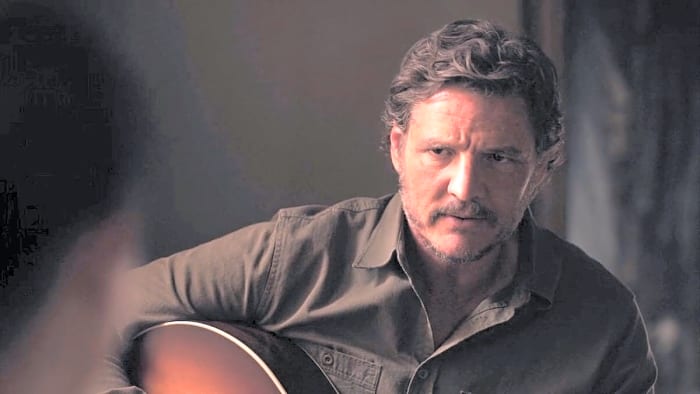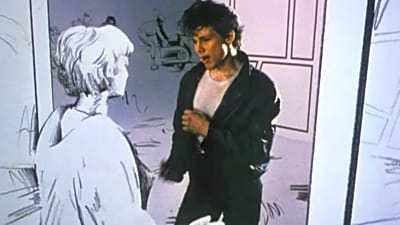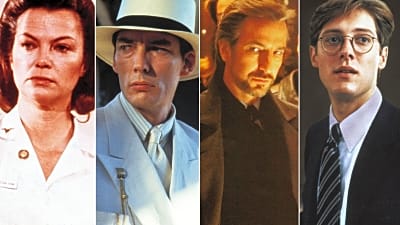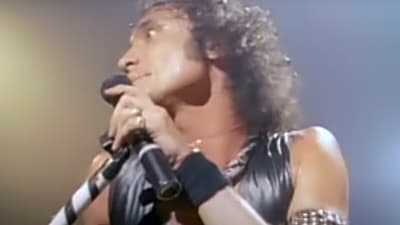
We’re all suckers (in the best way) for certain story tropes, and during its second season The Last of Us has more than delivered on one of my favorites. The series has featured two incredible scenes, both adaptions from the video game, where someone in a horrible situation expresses their humanity by singing. Why does this particular trope always work on me when done even marginally well, let alone as beautifully as it has been done on The Last of Us? Because it’s the kind of moment that exemplifies why art matters at all.

“The Price” featured a series of flashbacks that covered Ellie’s birthdays during her time in Wyoming. For her first Joel gave her a refurbished guitar. He had said before, when she struggling after another traumatic experience, he would teach her. Now he was going to make good on that promise. But first Ellie wanted to hear him play. And so he did, shortly after he had murdered a bunch of Fireflies and doomed mankind. He played while the world outside the commune’s walls burned. He played even though neither him nor Ellie knew if they’d ever live to see another tomorrow. For a brief moment none of the horrors of life, of their pasts, and of the terrors that waited matter. It was just the two of them alone with a guitar and a song.
While Joel was never going to win Jackson Idol, his acoustic rendition of Pearl Jam’s “Future Days” definitely didn’t suck. It showed a gentler sider of Joel, a man seemingly better built to live in a brutal zombie apocalypse than civilized society. It was also a tender, perfect moment rich with meaning both for the characters and the larger story. And it gave even greater context to Ellie’s failed attempts to sing that song in season two’s fifth episode. The opening lyric, “If I ever were to lose you,” was too much for her to handle. The very song—written before the world died—that connected her to Joel also kept her from playing it. “Future Days” was too powerful, but that’s exactly why she turned to it in the first place.
Ellie was able to sing a whole song in episode four. Amid the ruins and death in Seattle she found a working guitar. And despite the enormous grief and anger that brought her to that moment, Ellie sat and played. She played for herself, so she could remember better times. She played to feel closer to the man who’d loved her enough to teach her how. Then when Dina walked in Ellie played for the woman she loves, her best friend.
While better than Joel, Ellie was never destined to win any singing competitions, either. But how well they sang didn’t matter. It was the fact they did at all. Despite living in a literal nightmare, despite the horrible things they’d done and had suffered, and (in Ellie’s case) despite what they planned to do, they each managed to show they’d kept part of their soul in song.
That’s something no cordyceps monster will ever do. It’s what sociopaths who lack empathy never understand about music, literature, movies, TV, comics, video games, and every other way our species has learned to express itself. They turned to art to connect with their better halves and with each other. They relied on our how our species has learned to tell all of us “we are not alone.”
That’s why this one trope turns me into Dina sitting in an abandoned building listen to A-ha. Art makes us human more than anything else. It’s not that we do it better than other creatures, it’s that we do it at all. A song can lift our spirits when we’re at our lowest. Art reminds us our pain, our hopes, our fears, our dreams, our worries, all of it is not a burden we carry by ourselves. We are, even if it doesn’t always seem like it, in this together. It can be easy to forget that, but that’s why art exists. It lets us know, even in a dystopian wasteland, the very act of being human binds us. And there’s strength in numbers, even if it’s just one person singing the song of another.
Whether it’s a squire singing the night before literal death arrives, three very different men carousing on a boat while a killer shark looms outside, a dad comforting his daughter as the world ends, or a soldier performing for men doomed to die in war, I will always be a sucker for this trope. It captures why art matters. It makes us feel good in good times and it comforts us in bad ones. Art reminds us in all its forms—as it always has and will for the last of us someday—our humanity is worth fighting for. And it’s worth fighting for the most when the world and others want to destroy it.
Mikey Walsh is a staff writer at Nerdist. Please tell him your favorite version of this trope. You can do that on Bluesky at @burgermike.
More must-reads:
- 20 children of famous actors who played a younger on-screen version of their parent
- 'The Paper' cast got surprise visit from Steve Carell and John Krasinski on first day or filming
Breaking News
Trending in Entertainment
Customize Your Newsletter
 +
+
Get the latest news and rumors, customized to your favorite sports and teams. Emailed daily. Always free!







